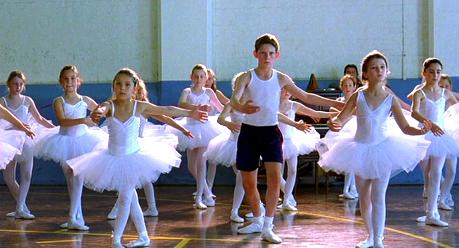
Universal Focus
 |
| Photo
© 2000 BBC Films/Working Title Films/ Universal Focus |
| Academy Award Nominations: | |
| Best Director: Stephen Daldry | |
| Best Supporting Actress: Julie Walters | |
| Best Original Screenplay: Lee Hall | |
| Golden Globe Nominations: | |
| Best Picture (Drama) | |
| Best Supporting Actress: Julie Walters | |
| Other Awards: | |
| Producers Guild of America: Most Promising Producer (Greg Brenman & Jonathan Finn) | |
| National Board of Review: Best Young Actor (Bell) | |
| British Academy Awards (BAFTAs): Best British Film; Best Actor (Bell); Best Supporting Actress (Walters) | |
| Permalink | Home | 2000 | ABC | Blog |